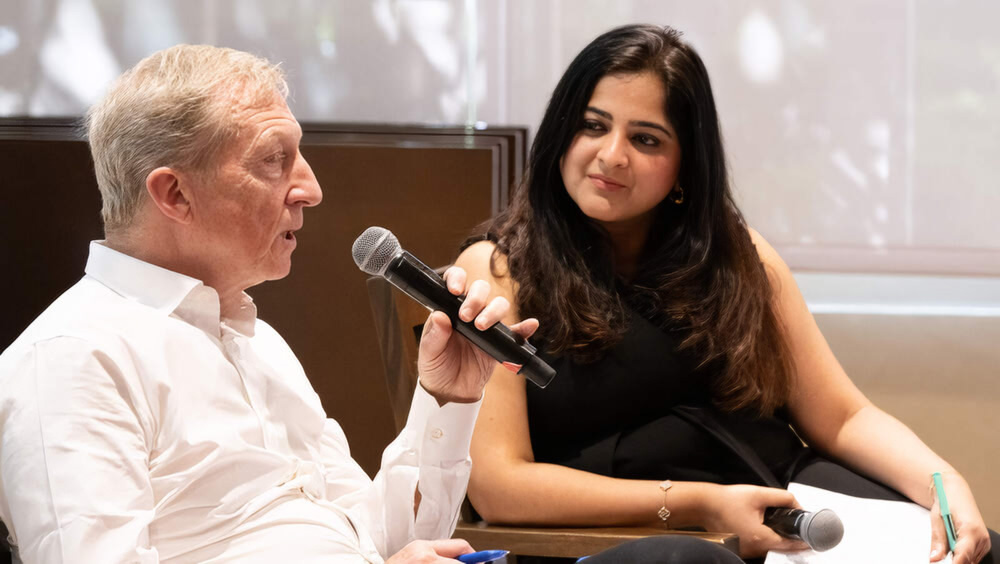On March 3, climate investor and former Democratic presidential candidate Tom Steyer joined USC Annenberg Dean Willow Bay and student panelists Anahita Mehra and Michael Kittilson for a conversation about his new book “Cheaper, Faster, Better: How We’ll Win the Climate War.”
Steyer’s message was clear: We’re already late, but that doesn’t mean we’ve lost. The fight against climate change won’t be won with statistics or policy debates, or even by feeling guilty about our contributions to the crisis. The fight has to become personal and a part of our identity that is bigger than politics or our individual limitations.
Clearly, current rhetoric around climate change isn’t working. There are people who deny the existence of climate change or are skeptical about it, and we cannot convince them no matter what scientists or experts say. However, there is another way to fuel the transition towards clean energy and net zero.
As the book title states, we must prove that green technology is cheaper, faster and better than its alternatives. Clean energy isn’t just the “right” choice — it’s becoming the cheapest, fastest and most profitable option. We don’t need to convince people to “do good” or care deeply about the environment. We need to make clean energy the obvious, accessible and attractive choice. That’s how we win.
Steyer also broke down “climate capitalism,” or the idea of using capitalism to address climate change by prioritizing both profit and environmental protections. This helps bridge the climate divide, moving beyond increasing polarization and making climate action something everyone, regardless of politics, can relate to.
When taking questions from students, Steyer tackled topics such as the role of the government in fighting climate change, addressing misinformation and disinformation, and the potential fast-growing economies have in collective climate action.
As someone who has lived in California for decades, he spoke with admiration of the resiliency of the L.A. community in the aftermath of the recent Los Angeles wildfires, and highlighted how extreme weather events like the wildfires are exacerbated by climate change.
Following the book talk and Q&A, Steyer signed copies of “Cheaper, Faster, Better” on the Wallis Annenberg Hall patio and met with students, faculty members and other event attendees.
To me, it was an inspiring, thought-provoking discussion with a clear takeaway: The future isn’t something we wait for — it’s something we build.
Grace Galante is a Research Assistant at the Center for Climate Journalism and Communication.
